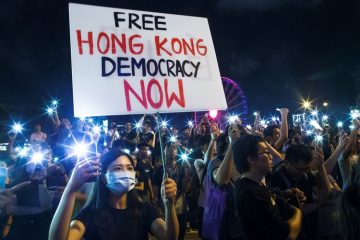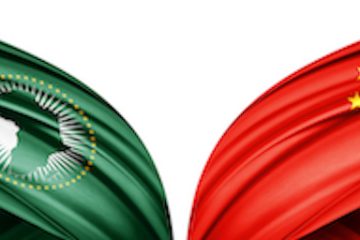In the Orbit of Democracy: Satellite Parties in South Korea’s 2020 Parliamentary Election
The South Korean legislative election on 15 April 2020 received high attention in international news as the first national election held under the constraints of the COVID-19 pandemic. Still, voter turnout, at 66.2 per cent, was the highest in 28 years and a North Korean defector, for the first time, was elected to the unicameral National Assembly (Gukhoe). The election, which resulted in a landslide victory for the incumbent government’s party, was the first under a new electoral reform that introduced compensation seats within the proportional representation (PR) tier of the mixed electoral system. In response, both major parties set up satellite organisations that only competed for PR seats. Thereby, the major parties consolidated their hegemony in the National Assembly …

Social Media: The Creative Destruction of Pakistani Politics
Around 400 years ago, Galileo Galilei of Pisa challenged the authority of the Catholic Church through his remarkable new invention: the telescope. Back then, the Church strongly influenced what people believed: that the earth was at the centre of the universe, with all other celestial bodies revolving around it, a phenomenon known as geocentrism. However, using the telescope for his observations, Galileo opposed this assertion, placing the sun rather than the earth at the universe’s centre. Naturally, this heliocentric model challenged the Church’s authority. The telescope marked a significant milestone in disproving the Church’s stance, leading to Galileo’s infamous trial in the Inquisition, where he was charged of heresy. But the damage had already been done. Seeds of doubt had …

Can the Pro-Democracy Hong Kong Lobby Still Influence Western Foreign Policy?
During the 2019 Anti-Extradition Bill protests in Hong Kong, activists made extensive efforts to internationalize their movement, engaging in public diplomacy and lobbying foreign governments to support their cause. The Hong Kong pro-democracy lobby—a loose coalition of individuals and organizations aiming to steer Western foreign policy in a direction they believe will benefit Hong Kong’s democratic prospects—emerged amidst this unprecedented grassroots mobilization. Four years on, however, the Hong Kong lobby is facing an uncertain future. Activists are striving to overcome the barriers posed by transnational repression and reinvent their image in today’s fraught geopolitical landscape. Two factors explain the success of Hong Kong activists in constructing and consolidating their lobbying infrastructure in 2019. First, the expansion and transformation of the …

Geopolitical challenges hamper Rohingya repatriation from Bangladesh
The Rohingya refugee crisis as a trigger for displacement For decades, the Rohingya, a predominantly Muslim ethnic group in Myanmar, have sought refuge in neighbouring Bangladesh to escape persecution. This influx, particularly since 2015, has strained Bangladesh’s limited resources. The persecution of the Rohingya is a textbook case of ethnic cleansing by Myanmar’s civilian-military government. With around one million Rohingya refugees in Bangladesh, concerns have been raised about the safety of the host population . Despite intense diplomatic efforts, Myanmar, governed by a military junta since 2021, remains reluctant to repatriate its Rohingya nationals, causing frustration in Bangladesh. Previous repatriation attempts in 2018 and 2019 failed due to the Rohingya refugees’ fear of violence upon return. In Rakhine State, where …

Bridging State Responsibility and Opportunities as African Countries Join in the Digital Silk Road
In 2015 China launched the Digital Silk Road (DSR hereafter). The DSR is an essential part of the One Belt, One Road (BRI) strategy with significant domestic and foreign policy objectives. China has made enormous investments that have allowed it to achieve rapid technological advancement and economic growth. As of 2021, Chinese firms were three of the world’s largest technology companies by revenue. According to the World Intellectual Property Organisation (WIPO), in 2020 China reported 1.5 million patent applications, 2.5 times more than the second leading country, the United States. The DSR is part of China’s plan to spread its technical and proprietary knowledge by building telecommunications, data, and financial infrastructure in countries participating in the BRI. The Nigerian digital …
OxPol Blogcast Episode 5: Biden’s North Korea Policy
Welcome to the OxPol Blogcast, a podcast where we will be sharing research, analysis, and experiences from members of the University of Oxford’s Department of Politics and International Relations. On each, episode we will talk to a guest about a piece they’ve written for the OxPol Blog. Then, we’ll discuss their larger research agenda, their insights on conducting political science, and their time at Oxford. On this episode of the OxPol BlogCast, host Chase Harrison talks to Stipendiary Lecturer in Politics Edward Howell about Biden’s policy on North Korea, regional relations around the Korean Peninsula, and exact you conducts research on a notoriously closed off country like North Korea. Read the original blog post here: https://blog.politics.ox.ac.uk/washington-and-pyongyang-back-to-square-one/
Washington and Pyongyang: Back to Square One?
US administrations may change, but the North Korean problem, in all its guises, has plagued the United States for at least the past thirty years. The new Commander-in-Chief, Joe Biden, and his administration are facing increasing calls from the broader international community to clarify US policy towards East Asia, which includes China, Japan, and the two Koreas. The last Democratic administration, that of Barack Obama, focused on strengthening US bilateral alliances within the East Asian region, regional stability, and bolstering relationships with emerging powers. Yet, it did not fully address one of the greatest geopolitical challenges in the region: North Korea’s nuclear program. During the Obama administration, North Korea conducted four nuclear tests, one of which it claimed to be …
OxPol BlogCast Episode 2: The Milk Tea Alliance
Welcome to the OxPol Blogcast, a podcast where we will be sharing research, analysis, and experiences from members of the University of Oxford’s Department of Politics and International Relations. On each episode, we will talk to a guest about a piece they’ve written for the OxPol Blog. Then, we’ll discuss their larger research agenda, their insights on conducting political science, and their time at Oxford. On the 2nd episode of the OxPol BlogCast, host Chase Harrison talks to MPhil students Jasmine Chia and Scott Singer about the Milk Tea Alliance and its relationship to 20th century black anti-colonialists. They also discuss the movement to decenter International Relations scholarship. Read the original blog post here: https://blog.politics.ox.ac.uk/the-new-worldmakers-how-the-20th-century-black-anticolonial-dialogue-reveals-the-strategic-importance-of-the-milk-tea-alliance/
The New ‘Worldmakers’: How the 20th Century Black Anticolonial Dialogue Reveals the Strategic Importance of the Milk Tea Alliance
Growing tension in Berlin. A proxy war in Korea. The escalating Space Race. The world—and particularly its realists—focused on the evolving great power competition between the United States and Soviet Union during the Cold War. However, in the shadows of this marquee battle, black leaders such as Kwame Nkumrah, Eric Williams, and George Padmore drove an anticolonial dialogue that sought to transform the international order on their own accord. Their core mission: to reframe sovereignty, reconceptualising it as self-determination and the elimination of racial hierarchy. This weighty conversation, which took place from the 1950s to the 1980s, doesn’t seem related to an Asian meme war in 2020. However, amidst a new, growing Cold War between the U.S. and China, the ‘Milk Tea Alliance’ has emerged as the newest supranational …








